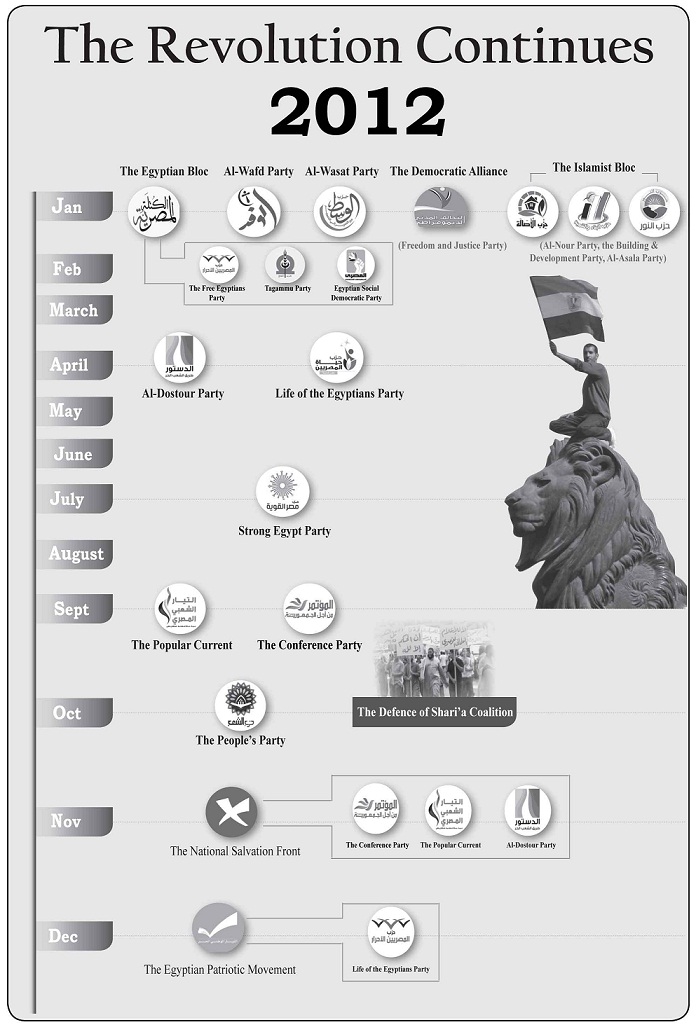By Jake Lippincott
The US State Department released its annual human rights report on 27 February. The report, which covers the state of Human rights across the world, was overwhelmingly negative regarding Egypt.
The Egyptian foreign ministry criticised the American report and accused the US of hypocrisy, bias and applying double standards.
The section on Egypt, which covered all of 2013, was critical of human rights both under ousted President Mohamed Morsi and the military-backed interim government which replaced him, and implicated political groups on both sides of the conflict. It also notes that throughout the year “the authorities at times failed to maintain effective control over the security forces… [which] committed human rights abuses.”
The report mentions a wide range of problems, including inadequate enforcement of labour laws, widespread sexual assault against women and discrimination against sexual and religious minorities. It also highlights issues directly related to the ongoing political conflict in Egypt.
According to the report: “The most significant human rights problems were: the removal of an elected civilian government; excessive use of force by security forces, including unlawful killings and torture; the suppression of civil liberties, including societal and government restrictions on freedom of expression and press and freedom of assembly; and military trials of civilians.”
A continuing theme throughout is the near total impunity enjoyed by security forces despite widespread and continuing human rights abuses and torture. The report states: “On rare occasions the Morsi and interim governments prosecuted persons, including security personnel, who committed human rights abuses. Either the government did not seriously investigate most incidents of security force violence, or investigation resulted in acquittals, fostering an environment of impunity for security personnel.”
The report also highlights the lack of press freedom in Egypt and the common legal and physical attacks on journalists by successive Egyptian governments.
According to the report, “under the Morsi government, there… were actions taken to stifle freedom of expression, with private citizens and the government bringing cases against public and media personalities for blasphemy, incitement, or insulting the president or other government figures.” The report adds that after Morsi was deposed the military government forcibly shut down several media outlets and official accreditation became prohibitively difficult for foreign journalists.
Beyond the legal challenges facing journalists, the State Department report also commented on the widespread campaign of violence facing journalists trying to do their jobs. According to the report: “State and non-state actors arrested and imprisoned, killed, physically attacked, harassed, and intimidated journalists throughout the year. Six journalists were killed during the year.” The report adds that between 28 and 29 June alone “one journalist was killed, seven wounded, and one raped while covering anti-Morsi protests across the country.”
On a related note, the report paints a grim picture of freedom of speech and political organising in Egypt.
According to the report, during Morsi’s rule, opposition activists were persecuted with the same methods used to silence journalists, as well as being subjected to significant violence and torture at the hands of police forces. After Morsi was deposed new laws were instituted, further restricting the right to engage in political activism.
The report said: “A restrictive 24 November law on demonstrations requires permission to demonstrate, contains vague language listing prohibited activities, and gives the Minister of Interior the authority to prohibit or curtail planned demonstrations.” The report also highlights the large number of protesters killed by security forces since Morsi’s ouster.
In response to the American report, Foreign Ministry Spokesman Badr Abdelatty took issue with the characterisation of Morsi’s administration as an elected civilian government and stated that Morsi’s overthrow was a “genuine popular revolution”. He further questioned America’s authority to judge the human rights performances of others given America’s controversial policies regarding Guantanamo Bay, foreign eavesdropping and “systematic violence against civilians” perpetrated by US forces


